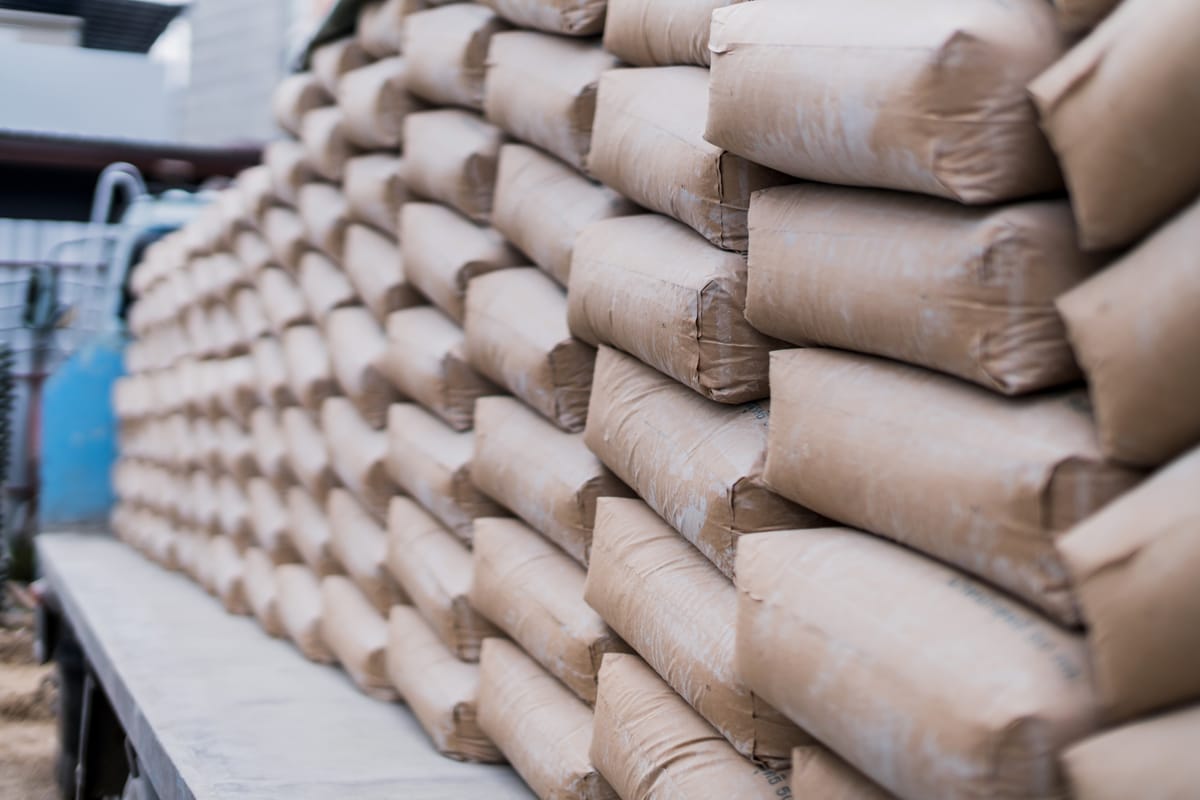In this week's brief, we look at an effort to decarbonize cement production, the impact of climate change on French wine, and solar start-ups expanding energy access across Africa.
Follow Tectonic on Instagram and LinkedIn for regular updates about the innovators and innovations moving climate ambition into action.
Cement plant in Norway plans to capture emissions: Cement production accounts for nearly 7% of the world’s carbon dioxide emissions and is a crucial component in the global economy, making it challenging to reduce its usage. German company Heidelberg Materials is installing a carbon capture system in a cement plant in Brevik, Norway, in the first large-scale commercial effort to strip CO2 emissions from cement and bury them. The captured CO2 will be chilled to a liquid, loaded onto ships, and transported to a terminal near Bergen, where it will be pumped 70 miles offshore into rocks beneath the North Sea. The project is expected to be completed early next year, with the Norwegian government covering 85% of the estimated 400 million euro cost. While the process is more costly, the company expects to command a premium for the greener cement.
Oil executives urge Trump not to repeal IRA if elected: Oil companies, including Exxon Mobil, Phillips 66, and Occidental Petroleum, are urging former President Trump and his allies in Congress not to repeal or gut the Inflation Reduction Act (IRA). Despite initially opposing the law when it passed in 2022, the oil industry has come to appreciate provisions that allocate billions of dollars for low-carbon energy projects, such as tax credits for renewable fuel, carbon capture, and hydrogen investments. Executives in the oil industry are concerned that if Trump is re-elected, he may side with conservative lawmakers who want to repeal the IRA, resulting in the loss of vital tax credits for their investments in low-carbon technologies.
Warmer ocean fuels hurricanes: Hurricane Milton, which reached Category 5 strength, was driven by the abnormally warm waters of the Gulf of Mexico, both at the surface and in deeper waters. The upper layer of the world's oceans has been at or near record-high temperatures for a year and a half. An analysis conducted by nearly two dozen researchers affiliated with World Weather Attribution found that the ocean waters from which Helene drew energy were around 2.3 degrees Fahrenheit warmer, contributing to the storm's increased intensity.
Home Depot reduces packaging: Home Depot has eliminated Styrofoam and PVC plastic film from packaging used for its private-label products, citing their difficulty in recycling and links to human health issues. The reduction initiative required the redesign of nearly 1,300 packages for Home Depot's brands between 2017 and 2023, resulting in the removal of 6 million cubic feet of Styrofoam and 39 million square feet of plastic film in 2023 alone. The redesign also led to lighter, smaller packages, increasing the number of items that can be placed on shelves or packed into trucks. Home Depot's next goal is to transition to fiber-based packages that are compostable, recyclable, or made of recycled contents by fiscal year 2027, focusing on materials such as molded pulp, paper, and paperboard. The company also aims to cut out 200 million pounds of virgin plastic by the end of 2028 through packaging reductions or by substituting recycled or alternative materials.
New design to capture wind energy raises $13.75M: Airloom Energy, a startup backed by the US Department of Defense and Bill Gates developing a novel wind turbine design, has received $13.75 million in financing to build a pilot project in Wyoming. The funding round was led by Lowercarbon Capital and included $7.5 million from Gates’s Breakthrough Energy Ventures LLC. Unlike traditional wind turbines, Airloom's design uses a rollercoaster-like track where wind pushes wings around the structure, pulling a belt that powers generators to produce electricity. This innovative design aims to create equipment significantly smaller than traditional horizontal axis wind towers, potentially reducing construction and transportation costs and producing power at about a third of the cost of conventional turbines.
Explore ways we can work together.
John Kerry joins Galvanize: Former US Secretary of State John Kerry has joined Tom Steyer's firm, Galvanize Climate Solutions, as co-executive chair following his departure from the Biden Administration earlier this year. Leveraging his experience as a top climate diplomat, Kerry will focus on expanding the firm's strategies and provide insight into how technology, policy, and geopolitics are shaping the shift to clean energy. Galvanize Climate Solutions, co-founded by Steyer and Katie Hall, manages approximately $1 billion in assets, investing in various sectors such as venture capital, real estate, and stocks.
UK government provides backstop for renewable power storage: The UK government is introducing a new funding program to support investment in long-duration storage, a crucial component in the expansion of renewable energy. The program will guarantee energy storage developers a minimum revenue, ensuring they can cover debt repayments while implementing a revenue cap to share profits above a certain level. The program addresses the high upfront costs that deter investors from building energy storage capacity, essential for decarbonizing electricity grids. According to government analysis, approximately 15.3 gigawatts of long-duration storage is required to achieve net zero by 2050.
Solar power expands across Africa: Central and West Africa have some of the world's lowest electrification rates, with 220 million people in West Africa living without power and only 8% of the population having access to electricity. Solar power companies in the region are experiencing rapid growth, providing stable electricity to millions of people in areas with limited access to the electricity grid. These companies, often African-owned, offer a range of products, including solar-powered lamps, home systems, and appliances, with prices ranging from less than $20 to thousands of dollars. Easy Solar, a locally owned firm in Sierra Leone and Liberia, has brought solar power to over a million people in these countries, with a network of agents and shops in all 16 districts of Sierra Leone and seven of nine counties in Liberia. Altech, a solar power company based in Congo, has also experienced rapid growth, operating in 23 out of 26 provinces in Congo and selling over one million products, including solar-powered solutions for homes and businesses. Both companies have reported high repayment rates, with Altech's repayment rate over 90%, partly helped by a system that can remotely turn off power to appliances if people don't pay.
Climate impacts French wine production: France's wine production for 2024 is expected to decline by 22% due to unfavorable weather conditions across all wine-growing areas. According to an agriculture ministry report, the country's wine output is forecasted to be 37.5 million hectoliters this year, which is 15% below the five-year average. The bad weather has affected wine production and damaged other crops across France, with the soft-wheat harvest expected to be the lowest in 40 years.
More than 100 CEOS back climate action ahead of COP29: More than 100 CEOs, including those from Ikea, AstraZeneca, and Volvo Cars, have signed an open letter calling for governments to boost the business case for green investment ahead of COP29 in Baku next month. The letter, organized by a World Economic Forum, urges governments to set firm targets, scale up finance, and remove obstacles for industries and companies to make green investments, with signatories supporting carbon pricing, high-quality carbon markets, and an end to fossil fuel subsidies. Prominent financiers, such as the bosses of Bank of America, BlackRock, Standard Chartered, and Deutsche Bank, are expected to skip the conference this year.
Learn more about Tectonic's creative agency.


